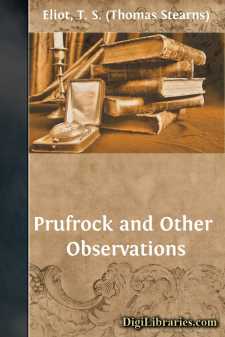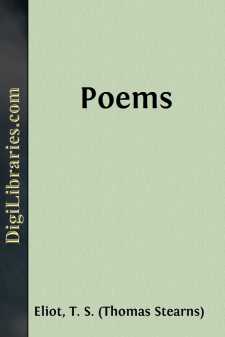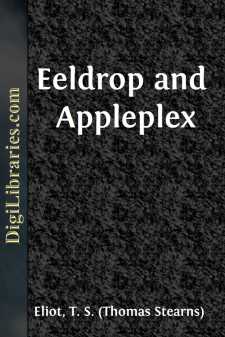Categories
- Antiques & Collectibles 13
- Architecture 36
- Art 48
- Bibles 22
- Biography & Autobiography 813
- Body, Mind & Spirit 142
- Business & Economics 28
- Children's Books 17
- Children's Fiction 14
- Computers 4
- Cooking 94
- Crafts & Hobbies 4
- Drama 346
- Education 46
- Family & Relationships 57
- Fiction 11829
- Games 19
- Gardening 17
- Health & Fitness 34
- History 1377
- House & Home 1
- Humor 147
- Juvenile Fiction 1873
- Juvenile Nonfiction 202
- Language Arts & Disciplines 88
- Law 16
- Literary Collections 686
- Literary Criticism 179
- Mathematics 13
- Medical 41
- Music 40
- Nature 179
- Non-Classifiable 1768
- Performing Arts 7
- Periodicals 1453
- Philosophy 64
- Photography 2
- Poetry 896
- Political Science 203
- Psychology 42
- Reference 154
- Religion 513
- Science 126
- Self-Help 84
- Social Science 81
- Sports & Recreation 34
- Study Aids 3
- Technology & Engineering 59
- Transportation 23
- Travel 463
- True Crime 29
Ezra Pound: His Metric and Poetry
Categories:
Description:
Excerpt
I
"All talk on modern poetry, by people who know," wrote Mr. Carl Sandburg in Poetry, "ends with dragging in Ezra Pound somewhere. He may be named only to be cursed as wanton and mocker, poseur, trifler and vagrant. Or he may be classed as filling a niche today like that of Keats in a preceding epoch. The point is, he will be mentioned."
This is a simple statement of fact. But though Mr. Pound is well known, even having been the victim of interviews for Sunday papers, it does not follow that his work is thoroughly known. There are twenty people who have their opinion of him for every one who has read his writings with any care. Of those twenty, there will be some who are shocked, some who are ruffled, some who are irritated, and one or two whose sense of dignity is outraged. The twenty-first critic will probably be one who knows and admires some of the poems, but who either says: "Pound is primarily a scholar, a translator," or "Pound's early verse was beautiful; his later work shows nothing better than the itch for advertisement, a mischievous desire to be annoying, or a childish desire to be original." There is a third type of reader, rare enough, who has perceived Mr. Pound for some years, who has followed his career intelligently, and who recognizes its consistency.
This essay is not written for the first twenty critics of literature, nor for that rare twenty-second who has just been mentioned, but for the admirer of a poem here or there, whose appreciation is capable of yielding him a larger return. If the reader is already at the stage where he can maintain at once the two propositions, "Pound is merely a scholar" and "Pound is merely a yellow journalist," or the other two propositions, "Pound is merely a technician" and "Pound is merely a prophet of chaos," then there is very little hope. But there are readers of poetry who have not yet reached this hypertrophy of the logical faculty; their attention might be arrested, not by an outburst of praise, but by a simple statement. The present essay aims merely at such a statement. It is not intended to be either a biographical or a critical study. It will not dilate upon "beauties"; it is a summary account of ten years' work in poetry. The citations from reviews will perhaps stimulate the reader to form his own opinion. We do not wish to form it for him. Nor shall we enter into other phases of Mr. Pound's activity during this ten years; his writings and views on art and music; though these would take an important place in any comprehensive biography.
Pound's first book was published in Venice. Venice was a halting point after he had left America and before he had settled in England, and here, in 1908, "A Lume Spento" appeared. The volume is now a rarity of literature; it was published by the author and made at a Venetian press where the author was able personally to supervise the printing; on paper which was a remainder of a supply which had been used for a History of the Church. Pound left Venice in the same year, and took "A Lume Spento" with him to London....





